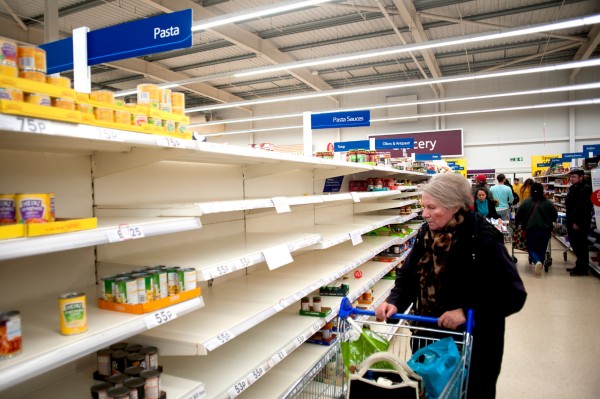
As we discussed in our last post, the consumer packaged goods (CPG) industry is going digital in order to move forward during this difficult time. Due to the number of trade show cancelations and travel restrictions, retailers are shifting to a digital way of doing business in order to continue product discovery. We’re taking a deeper look into the different ways retailers and their buying teams are continuing business and keeping up with product discovery digitally.
Virtual product discovery
There is no ignoring the effects COVID-19 is having on retail, and for category buyers these effects are overwhelming. For consumers, they are uncertain of when they will be able to shop more freely and what products they will need during the “shelter in place” orders more cities are implementing. Therefore they’re stocking up on essentials and several non-essential items as well. That means brick-and-mortar stores (and several online retailers like Amazon) are wiped out of products, causing a strain on inventory but the supply chain is still moving along. To support storefronts, retail buyers are working with their existing supplier partners as well as relying on digital ways of finding new products and bringing them into stores quickly, especially for products that are in high demand like:
- Canned goods
- Frozen foods
- Cleaning supplies
- Medicine
- Toilet paper and paper towels
- Dried goods like pasta, beans, lentils, etc.
Buyers are also turning to emerging brands to stock their shelves as customers are more willing to try a new product when their “typical” product choice is out of stock.
On RangeMe, buyers are able to leverage the product discovery platform to source and support their product needs all online. Buyers can view digital sell sheets, message with suppliers, and request samples from any of the 200,000+ brands that they might be interested in doing business with while keeping personal information private.
Another way to discover products virtually? Social media. More and more brands are leveraging social media to share their products on Instagram, Facebook, LinkedIn, and so on. By finding and researching brands on these social media platforms, buyers can check out the brand’s profile, follower count, and if consumer engagement is high, which are all important criteria to understand if a brand has a strong, existing following prior to bringing them into stores.
Online product sourcing campaigns
With trade shows getting canceled or postponed you can’t go to the products, but with digital sourcing, the products can come to you. Retailers and their buying teams are leveraging their digital capabilities by partnering with RangeMe to set up limited-time sourcing campaigns in addition to their regular submissions.
These temporary sourcing campaigns act as virtual networking events and retailers and distributors like Thrive Market, Albertsons, Fresh Thyme, Meijer, KeHE, and more are dedicating full days for their buying teams to review submitted products that they might have met at a trade show. Plus, retailers can set specific questions for suppliers to answer that they would have asked at a trade show.
Boosting e-commerce initiatives
As mentioned earlier, cities like San Francisco and New York City are implementing “shelter-in-place” orders that require only the “essential” businesses to stay open, such as grocery stores and pharmacies. Retailers who are able to remain open during this time will still see sales as people need to purchase essentials like food and medicine, however, they will also most likely see a slow down in actual foot traffic as fewer people will be going out.
On the other hand, you have e-commerce retailers seeing a lot more activity as consumers are following orders and making the choice to purchase online and get their food and other essentials delivered directly to their doors. That means retailers with brick-and-mortar stores that will remain open should also make sure that their e-commerce site is running efficiently and they are working with their existing suppliers to have enough inventory on hand at stores but also to ship out and find new suppliers who are drop-ship capable.
Through a platform like RangeMe, buyers can search freely for whatever products they are in need of, especially those in high-demand, and set filters for dropshipping which makes it easy to support a retailer’s e-commerce business.
COVID-19 is dramatically affecting how retailers do business, in both the immediate future and over the next coming weeks and months. As more of the unknowns around this virus become clear, it will undoubtedly change how consumers shop and how buyers buy. With digital sourcing, retailers can work through challenges facing the supply chain and ensure they have the right products for their customers when they need them most. Stay tuned for our post on what products buyers are currently searching for and how they’re turning to emerging brands to fill gaps.

